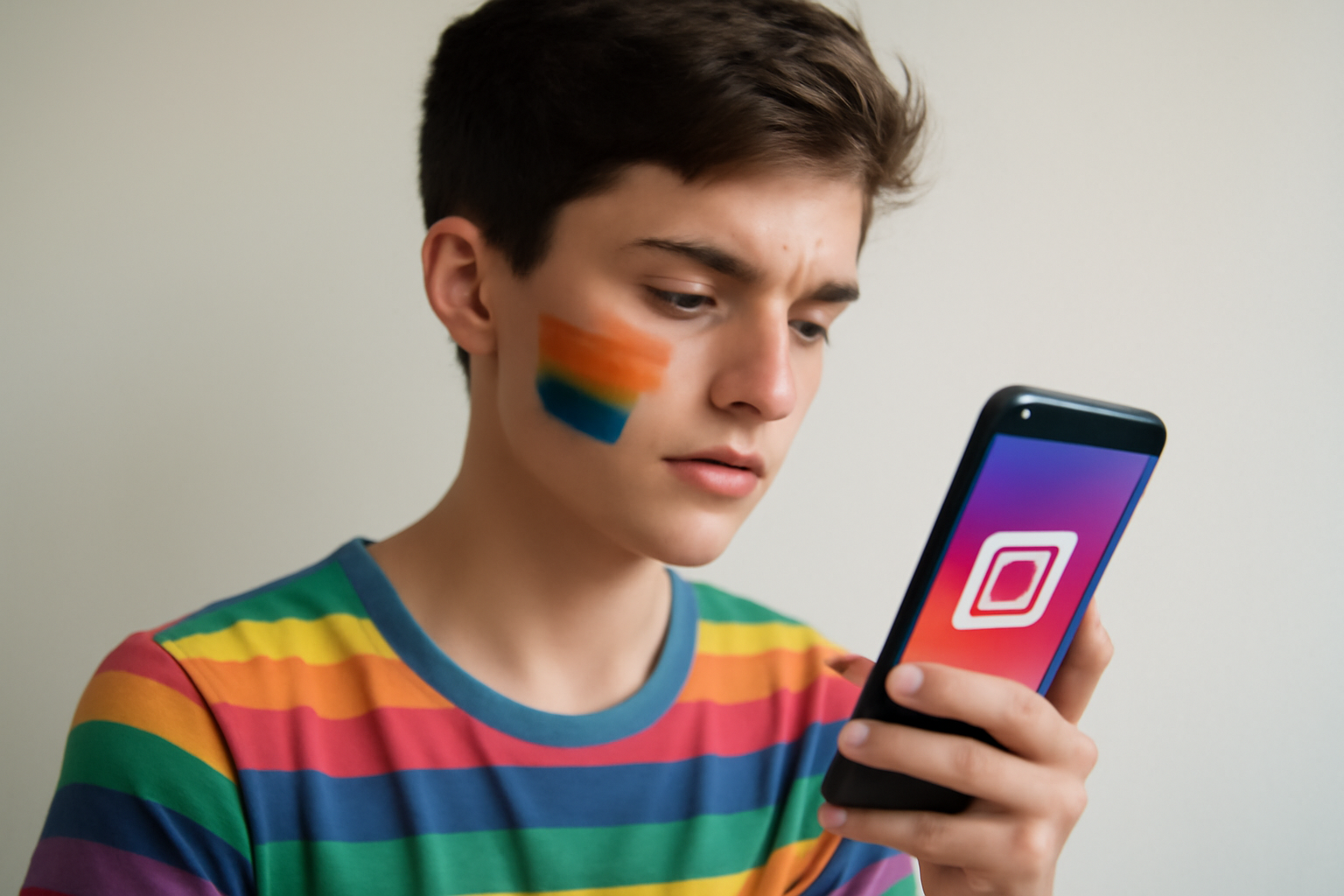
The digital landscape plays a significant role in shaping the lives of young people today, and platforms like Instagram are at the forefront of this transformation. As a major social media platform, Instagram hosts a vast array of content, connecting individuals across the globe and fostering diverse communities. However, a recent revelation regarding content restrictions has sparked concern, particularly within the LGBTQ+ community.
Content Restriction and Its Implications
Recently, it has come to light that certain content restrictions on Instagram have prevented teenagers from accessing LGBTQ+ content. This development has raised questions about how content regulation affects marginalized communities, particularly young people who are exploring their identities and seeking supportive spaces online.
The algorithms that drive content visibility on Instagram are designed to create a safe environment by filtering out content deemed inappropriate for younger audiences. However, these algorithms can inadvertently limit access to crucial information and community support for LGBTQ+ teens. This unintended consequence highlights the importance of inclusive digital policies that recognize the diverse needs of young people.
The Role of Social Media in Identity Exploration
For many teenagers, social media platforms serve as vital resources for exploring their identities and connecting with others who share similar experiences. LGBTQ+ youth, in particular, often turn to these platforms to find communities that affirm their identities and provide understanding and support. Restricted access to such content can hinder this exploration and leave young people feeling isolated and unsupported.
Social media's role in facilitating identity exploration underscores the need for platforms to consider the unique challenges faced by LGBTQ+ youth. By limiting access to LGBTQ+ content, Instagram risks depriving young people of essential resources that contribute to their sense of belonging and personal growth.
Challenges of Content Moderation
The challenge of moderating content on a global platform like Instagram is immense. While content regulation aims to protect younger users from harmful material, it must also balance the need for open access to supportive and educational content. For LGBTQ+ youth, access to affirming content can be a lifeline, offering validation and a sense of community.
Content moderation policies that are too broad or not adequately nuanced can inadvertently reinforce exclusion and discrimination. It is crucial for platforms to engage with LGBTQ+ advocacy groups and community members to develop guidelines that are sensitive to the needs of marginalized groups.
The Importance of Inclusive Policies
In addressing these concerns, social media companies must prioritize creating an inclusive digital environment that recognizes the diverse experiences of all users. This includes implementing policies that allow for the safe and open expression of LGBTQ+ identities while protecting users from genuinely harmful content.
Inclusive policies not only benefit LGBTQ+ youth but also contribute to a richer and more diverse online community for everyone. By fostering an environment where all individuals feel seen and heard, platforms like Instagram can support positive social change and personal development.
Looking Ahead: Towards a More Inclusive Digital Space
As the conversation around digital inclusivity continues to evolve, it is imperative for social media platforms to embrace a more holistic approach to content regulation. This involves consulting with LGBTQ+ communities and experts to ensure that content policies are both protective and inclusive.
Ultimately, the goal should be to create an online space where all users, regardless of age or identity, can access the resources and communities they need. By addressing the current limitations in content accessibility, platforms like Instagram can help empower LGBTQ+ youth and support their journey of self-discovery.
In conclusion, while content restrictions are necessary for protecting younger users, they must be carefully crafted to avoid marginalizing important communities. By fostering inclusive and thoughtful policies, social media can become a powerful tool for connection, support, and empowerment for all users.
Related Posts
Triumphant Trans Woman Wins Legal Battle and Inspires Others to Stand Up for Their Rights
Breaking new ground: a landmark victory in transgender rights After battling in courtrooms and enduring endless challenges, Diana Portillo, a transgender woman, has secured a monumental victory in her decade-long fight against workplace discrimination. The result? Nearly $1 million awarded in a historic settlement. But this isn't just a win on paper—it represents a powerful precedent in combati [...]
Pride Month in Latin America: Protests and Demands for Equality
**Celebrating Pride and advocating LGBTQ+ rights in Latin America** Pride Month in Latin America was a lively mix where celebration met activism. Communities united, not just throwing a party but making a stand—demanding equality and pushing governments toward better protection and rights recognition. Throughout Latin America, pride events erupted in marches and cultural displays, each with a c [...]
Transgender Erasure Actions Implemented by National Park Service
```html Trump administration's impact on national park service and transgender recognition The Trump administration made notable moves in undermining transgender representation, which included directing agencies like National Park Service not include "T" and "Q" when they refered “LGBTQ” in any official communication. This move seems part a broader plan by this administration aimed at reducin [...]